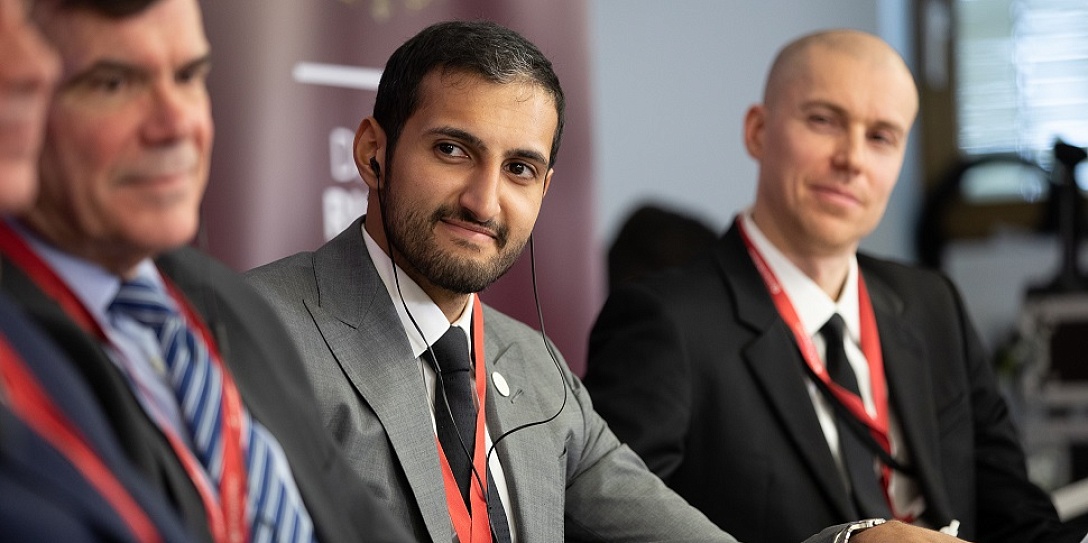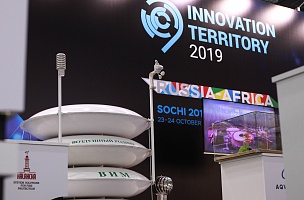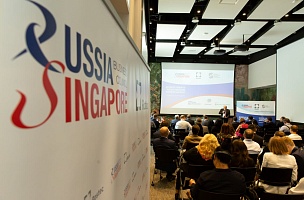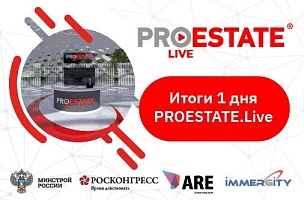Smart city is the element of competitive production infrastructure of the future
«Businesses need smart cities. If you look at global GDP growth, you will find that urban places create most of the value added in the global economy. If we can make them more efficient and better places to live, it is going to be good for business,» Daniel Russell, President, Chief Executive Officer, US—Russia Business Council (USRBC).
«We need to ensure that new technologies bring in profits. In that case, part of that money is transferred to the budget in the form of taxes and invested in new services and features. The government generally understands that,» Arkady Dvorkovich, Chairman, Skolkovo Foundation.
«Modern startups cannot adapt to the already existing infrastructure; modern solutions need a different infrastructure,» Boris Bernaskoni, Founder, Bureau Bernaskoni.
«Moscow is the powerhouse of the Russian economy. It accounts for nearly 26% of Russia’s GDP, and brings in more than 50% of foreign investments,» Sergey Cheryomin, Minister, Head of Department for Foreign Economic Activity and International Relations, Moscow City Government; Chairman of the Board, Business Council for Cooperation with India.
«Today’s real estate aggregate value is USD 217 trillion, and this number grows every year. Real estate is 60% today, and all other assets account for 40%. This area is by far the most monetized,» Boris Bernaskoni, Founder, Bureau Bernaskoni.
Smart city is the next stage in the evolution of any modern city
«Smart city is human capital plus digitalization of all areas of municipal operation and all areas of the city’s economy. If a giant megapolis is managed without digital technologies, without artificial intelligence, without analyzing enormous volumes of data, without tracking every person in real time, it is impossible to develop infrastructure, transport, healthcare, education and social sphere,» Sergey Cheryomin, Minister, Head of Department for Foreign Economic Activity and International Relations, Moscow City Government; Chairman of the Board, Business Council for Cooperation with India.
«Moscow cannot but develop digital technologies in order to maintain competitiveness and economic leadership. Since 2011, the mayor of Moscow has made it a key priority to ensure development of the city’s digital infrastructure, which would become a unified interface for managing all urban processes,» Sergey Cheryomin, Minister, Head of Department for Foreign Economic Activity and International Relations, Moscow City Government; Chairman of the Board, Business Council for Cooperation with India.
Russia has gained remarkable experience in creating and managing smart urban systems
«Skolkovo may be considered a kind of international start-up in creating a smart city,» Boris Bernaskoni, Founder, Bureau Bernaskoni.
«This [applying technology within Skolkovo] was the idea from the very beginning, when Skolkovo was conceived 10 years ago. We decided that all new interesting solutions would be tested in Skolkovo. This is what we do as part of the Skolkovo’s energy infrastructure development: smart grids, smart management of energy systems. The same goes for transport infrastructure: Yandex self-driving autonomous car cruises around Skolkovo already,» Arkady Dvorkovich, Chairman, Skolkovo Foundation.
«The first building [in Skolkovo] — the hypercube — was the prototype of the architecture of the future, which consisted in a simple ‘4 E’s’ formula: energy efficiency, environmental friendliness, ergonomics and economic efficiency. Later the fifth ‘E’ was added: emotionality. In fact, we created the first timeless building,» Boris Bernaskoni, Founder, Bureau Bernaskoni.
«Last year, the UN ranked Moscow number one in the world in terms of introducing information technology into the urban environment. WEGO also put Moscow on their list of leaders in IT. PWC placed Moscow among the top five megacities that are ready to apply the most high-tech solutions in the municipal economy,» Sergey Cheryomin, Minister, Head of Department for Foreign Economic Activity and International Relations, Moscow City Government; Chairman of the Board, Business Council for Cooperation with India.
«According to TomTom rating, Moscow has become the leader in the implementation of information technology in parking systems,» Sergey Cheryomin, Minister, Head of Department for Foreign Economic Activity and International Relations, Moscow City Government; Chairman of the Board, Business Council for Cooperation with India.
«The city invests gigantic funds in the development of transport infrastructure — public transport, above all — and its digitalization in particular. Moscow Metro, which carries 8 to 10 million passengers a day, is operated with such efficiency that the train frequency is 80–90 seconds. This pace is unmatched, perhaps, except for Japan and several cities of the world,» Sergey Cheryomin, Minister, Head of Department for Foreign Economic Activity and International Relations, Moscow City Government; Chairman of the Board, Business Council for Cooperation with India.
«Without even noticing it, you use high-speed Wi-Fi on metro trains. Even futurologists could not have dreamed about it 10 years ago. Or the fact that there will be Wi-Fi in Moscow trams and buses. Traffic analysis will allow us to draw conclusions on how traffic flows should be adjusted, where the new traffic lanes for public transport should be launched, where the metro should be developed,» Sergey Cheryomin, Minister, Head of Department for Foreign Economic Activity and International Relations, Moscow City Government; Chairman of the Board, Business Council for Cooperation with India.
«Over the last seven years, the length of the metro system has increased by 30%. That is 136 km of new lines and 70 new stations. That would not have been possible without applying digital technology,» Sergey Cheryomin, Minister, Head of Department for Foreign Economic Activity and International Relations, Moscow City Government; Chairman of the Board, Business Council for Cooperation with India.
Problems
Building a smart city faces the dilemma of choosing between modernizing the old infrastructure and building the new one
«We were at a crossroads: we would either upgrade old systems and follow the path of brownfield, or we would go greenfield and introduce the most modern technologies, that we, in part, borrowed from our partners and colleagues from all over the globe. We came to a conclusion that it was possible to modernize existing platforms in some areas, but a revolutionary move forward would only be possible if we chose to go greenfield,» Sergey Cheryomin, Minister, Head of Department for Foreign Economic Activity and International Relations, Moscow City Government; Chairman of the Board, Business Council for Cooperation with India.
«The thing with Lusail is that it is a completely greenfield project. It is a new city built on the aspect of it being a smart city. And all the infrastructure, all the integrated networks were provided from the outside. The city also has a more centralized approach to tackling several different issues, and that is the Lusail Command & Control Centre. Through the Centre a number of government agencies would communicate, monitor the situation in the city in real time and facilitate traffic, sewage, waste disposal and many other different services,» H.E. Sheikh Ali Al-Thani, Adviser to the Prime Minister for Economic Affairs of the State of Qatar.
Creating smart cities carries all the risks inherent to new technologies
«Algorithms and artificial intelligence do not live a life of their own, but for now they are controlled from the outside. So far, they do not cause such concerns as blockchain, which is now actively slowed down by governments of the world,» Boris Bernaskoni, Founder, Bureau Bernaskoni.
«We need to consider the pitfalls that can be set up when we actively introduce digitalization. In construction projects, a situation often arises when there are three errors, and each of them may be involved in a project. The first one is an error in modelling, the second one is an interpretation error, and [the third one is] technical error. At the moment, there is not enough technology to design in the mode of automatic transposition of BIM models into visual interpretation and verification on the ground. We can solve this problem over the long term. Designing, testing and monitoring almost instantly, while actually being on site — that is the future,» Alexander Bayov, Commissioner for External Relations, Moscow Chamber of Commerce and Industry.
Solutions
Using smart infrastructure to improve the quality of living and security of the residents
«The World Cup was a success, in part thanks to digital technologies. Control systems and fan ID’s prevented many provocateurs from showing up at the stadiums,» Sergey Cheryomin, Minister, Head of Department for Foreign Economic Activity and International Relations, Moscow City Government; Chairman of the Board, Business Council for Cooperation with India.
«The most modern video surveillance system is going to be launched in Moscow. Over 140,000 cameras have been integrated into a unified video surveillance system — that is more than in London,» Sergey Cheryomin, Minister, Head of Department for Foreign Economic Activity and International Relations, Moscow City Government; Chairman of the Board, Business Council for Cooperation with India.
«A unique Moscow eSchool system has been introduced. It is a unified information platform that brought together all students and teachers; it is a unique library of the best lessons [...]. The effect of such gigantic investment is immeasurable. Last year, the Programme for International Student Assessment (PISA) put Moscow on their list of leaders in primary education. We joined the world’s top five megacities in terms of the quality of secondary education,» Sergey Cheryomin, Minister, Head of Department for Foreign Economic Activity and International Relations, Moscow City Government; Chairman of the Board, Business Council for Cooperation with India.
«Another solution is with regards to civil defence and incidents of fire. If there is a fire in a building, through the Command & Control Centre they would be able to block off traffic to make a green corridor through the traffic lights for the civil defence services to get there,» H.E. Sheikh Ali Al-Thani, Adviser to the Prime Minister for Economic Affairs of the State of Qatar.
«Through the 5G network [the Command & Control Centre] would provide specialized services for autonomous vehicles by reducing the latency to one millisecond, also with regards to air taxis,» H.E. Sheikh Ali Al-Thani, Adviser to the Prime Minister for Economic Affairs of the State of Qatar.
In the present conditions, it is necessary to apply all possible technologies in urban planning solutions
«All the Big Data collected by analytical centres form the basis of decision-making, particularly in urban planning,» Sergey Cheryomin, Minister, Head of Department for Foreign Economic Activity and International Relations, Moscow City Government; Chairman of the Board, Business Council for Cooperation with India.
«We had an issue in Doha with rainfall. Through the smart city projects, we have now been able to create the topographic map of different road systems. The system would identify areas in which water would accumulate [...] and it would redirect services to the areas where flooding is to happen before it actually occurs,» H.E. Sheikh Ali Al-Thani, Adviser to the Prime Minister for Economic Affairs of the State of Qatar.
Smart city should be a close cooperation between government, business and science
«In Skolkovo there are all three components associated with research. Profound research is underway at Skoltech. It will be the basis for the future technologies, machine learning and artificial intelligence applied in a variety of areas, from healthcare to energy. There is a business component: quite a few start-ups and industrial partners that are interested in the development of this subject. The third component is the government,» Arkady Dvorkovich, Chairman, Skolkovo Foundation.
«Last survey I saw by the National League of Cities says that roughly 66% of American cities use some smart technology. I talked to some of the people involved, and there are three takeaways worth considering. The first part is the role of business, because if you look at all the success stories in the US, you will find behind almost all of them some sort of public-private partnership. It is business bringing resources and emerging technologies, it is cities creating the demand and the infrastructure to do that. Secondly, it is about creating ecosystems to serve all the stakeholders. [...] The other thing is to create what the experts call an open protocol architecture that can deal with emerging technologies,» Daniel Russell, President, Chief Executive Officer, US—Russia Business Council (USRBC).
Smart infrastructure can be shared between cities to reduce costs
«Stadiums [for the World Cup] will be structured in a way so that a part of the stadium could be disassembled and donated to different countries. The advantage of having stadiums in such a short distance from each other is that fans will be able to go and visit multiple matches in a single day through a centralized metro system which connects all the stadiums,» H.E. Sheikh Ali Al-Thani, Adviser to the Prime Minister for Economic Affairs of the State of Qatar.
Information may be used with a mandatory link to the Information and Analytical System of the Roscongress Foundation.






